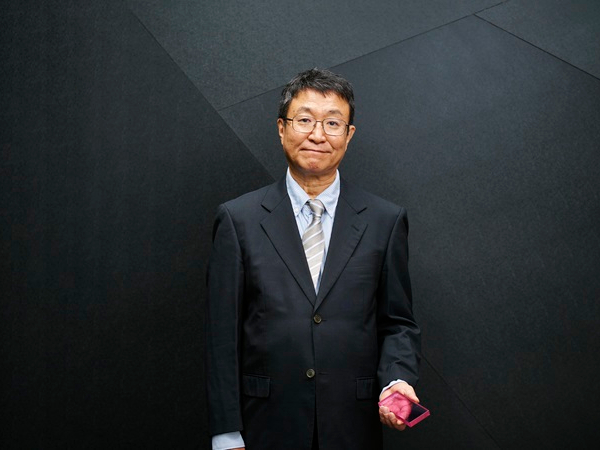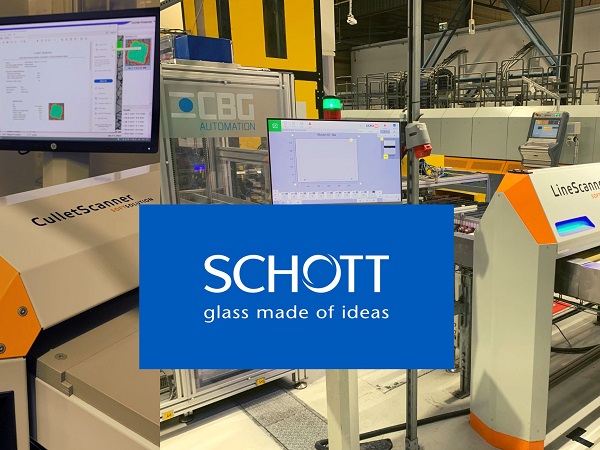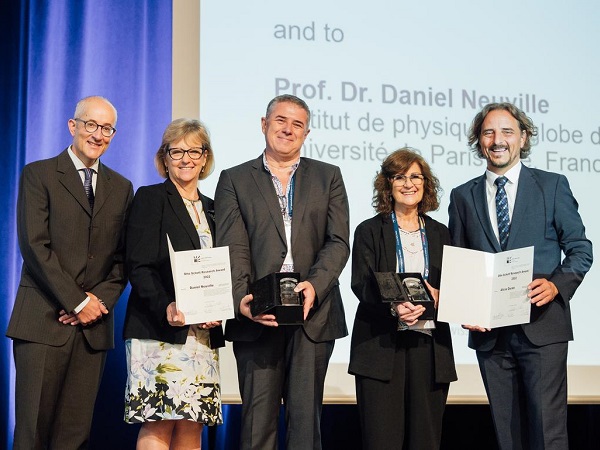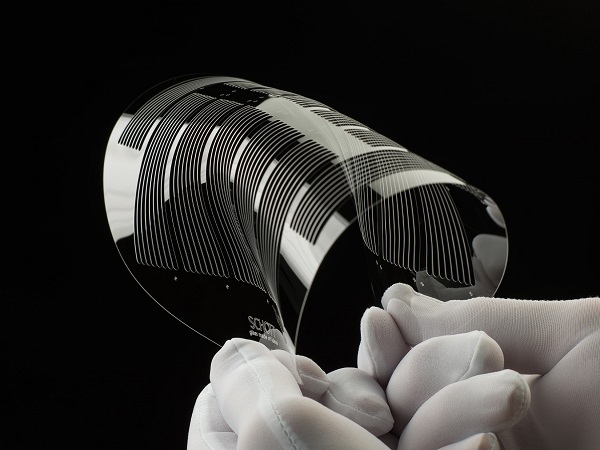Date: 6 May 2014
Sensors, for example, are used in numerous applications that function in demanding conditions. In order to reliably protect these sensors, various metals and alloys ranging from titanium and aluminum to Monel and Inconel can be used. In addition to glass-to-metal combinations, ceramic-to-metal seals are also possible depending on the compatibility of the coefficients of thermal expansion. The company has been active in this business for over 70 years and based on its broad know-how of material selection and combination, SCHOTT offers in-depth consultation to help customers achieve their desired product properties. SCHOTT will be presenting its product portfolio in the area of hermetic housings and feedthroughs at the SMT in Nuremberg from May 6-8. (SCHOTT booth no. 301 in hall 9).
.jpg)
SCHOTT’s hermetic housings and feedthroughs can be customized with a broad range of material combinations and package design formats to suit specific application requirements. Photo: SCHOTT.
The range of hermetic seals that SCHOTT manufactures to meet its customers’ special demands is characterized by the wide variety of materials used. SCHOTT has profound knowledge of the properties of both metals and glasses and how these can be best combined to ensure that the resulting glass-to-metal sealed package reliably withstands harsh environments. Based on the application requirements, the customer can specify the type of metal to be used for the housing. Customers can also define a specific property such as non-magnetism, light-weight or high thermal conductivity for their housings. “We have years of experience in advising our customers and are able to recommend and supply high-performance material combinations as well as the best technology. To do so, we leverage our knowledge of metals, housing designs, glass manufacturing, processing, melting and soldering technologies,” explains Michael Tratzky, Head of Sales of Opto-Electronics at SCHOTT Electronic Packaging.
.jpg)
SCHOTT’s production competencies range from tool development, machining, stamping, brazing to world-class in-house electroplating facilities. Photo: SCHOTT.
Expert knowledge of the different thermal coefficients of expansion of glass and metal is extremely important. The stability of the hermetic seals between these materials for an extended period of time can only be achieved if exactly the right combination of materials is used. “Choosing the right sealing glass is crucial. With 130 years of experience in the area of specialty glass and more than 70 years of experience in manufacturing hermetic seals and feedthroughs, we have precisely the know-how to do this,” Tratzky notes.
.jpg)
Expert knowledge in developing and manufacturing application-specific sealing glasses is essential for creating long-term hermetic seals between glass and metal. Photo: SCHOTT.
The wide range of materials that SCHOTT uses in its seals allow for a broad spectrum of product properties. For example, glass-to-titanium connections are ideal for aviation, aerospace and medical technology, where a light and nonmagnetic housing is needed. SCHOTT GTAS® (Glass-to-Aluminum Sealing Technology) packages are lightweight and are used in the automotive industry. Due to its resistance to acids and alkalis, the nickel-copper alloy Monel is most appropriate for the chemical industry. Housings made with Inconel are suited for applications that demand high mechanical strength and resistance to corrosion. Furthermore, SCHOTT also offers housings made with cold-rolled steel, stainless steel, kovar, copper, molybdenum and copper tungsten.
Ceramics can also be combined with the metals mentioned to create SCHOTT CerTMS® (Ceramic-to-Metal-Seals) packages if the coefficients of expansion are compatible. “We are the only vendor in Europe who offers a complete portfolio of hermetic housing technologies. Besides glass-to-metal and ceramic-to-metal seals, we can also offer multilayer ceramic packages (HTCC and LTCC) to support the growing trend toward miniaturization,” Tratzky explains.
Further information is available under: http://www.schott.com/epackaging/
GTAS® and CerTMS® are registered trademarks of SCHOTT AG.
Photo download link: http://www.schott-pictures.net/presskit/235318.smt/
SCHOTT is an international technology group with 130 years of experience in the areas of specialty glasses and materials and advanced technologies. SCHOTT ranks number one in the world with many of its products. Its core markets are the household appliance, pharmaceutical, electronics, optics, and transportation industries. The company is strongly committed to contributing to its customers’ success and making SCHOTT an important part of people’s lives with high-quality products and intelligent solutions. SCHOTT is committed to managing its business in a sustainable manner and supporting its employees, society and the environment. The SCHOTT Group maintains close proximity to its customers with manufacturing and sales units in 35 countries. Its workforce of 15,400 employees generated worldwide sales of approximately 1.84 billion euros for the 2012/2013 fiscal year. SCHOTT AG, with its headquarters in Mainz (Germany) is owned by the Carl Zeiss Foundation.







Add new comment